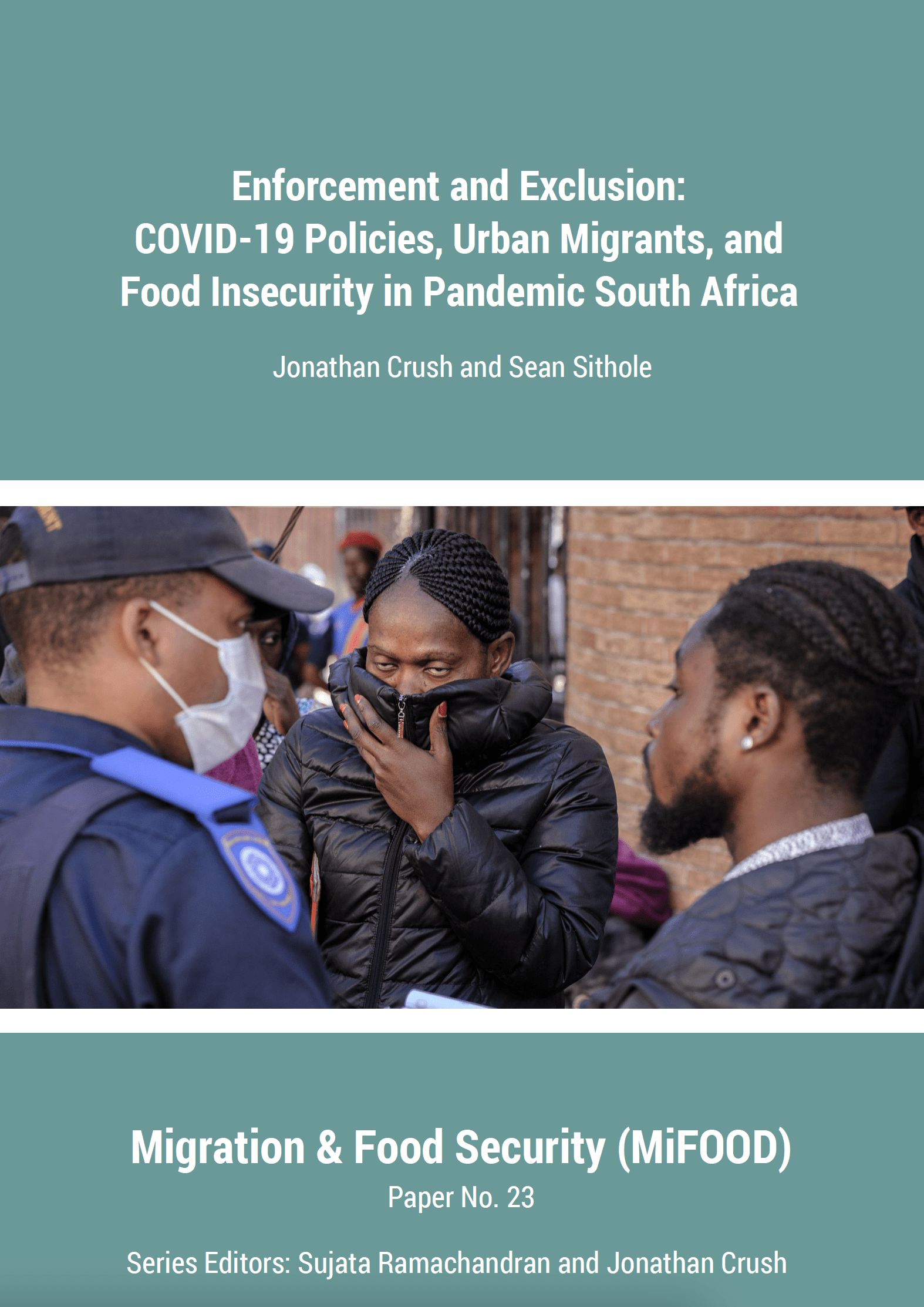On March 5th, 2020, South Africa recorded its first official case of COVID-19 when a South African tourist returning from a holiday in northern Italy tested positive. The number of excess deaths is now over 300,000. The policy response to the pandemic is widely regarded as amongst the most draconian in Africa. In 2020, the government imposed a stay-at-home lockdown for 100 days, which was strictly enforced by armed police and the army. Breach of lockdown was a criminal offence and arrests were widespread. By April 2021, over 400,000 had been apprehended, more than in any other country globally. In his 2021 book, One Virus, Two Countries, Steven Friedman suggests that government containment and punishment measures had a particularly negative impact on the country’s urban poor, a population that includes many internal migrants as well as several million international migrants and refugees. This MiFOOD paper provides an overview of the South Africa’s militaristic policy and policing response to the advent of COVID-19 and how this impacted on migrants in the urban formal and informal economy.

